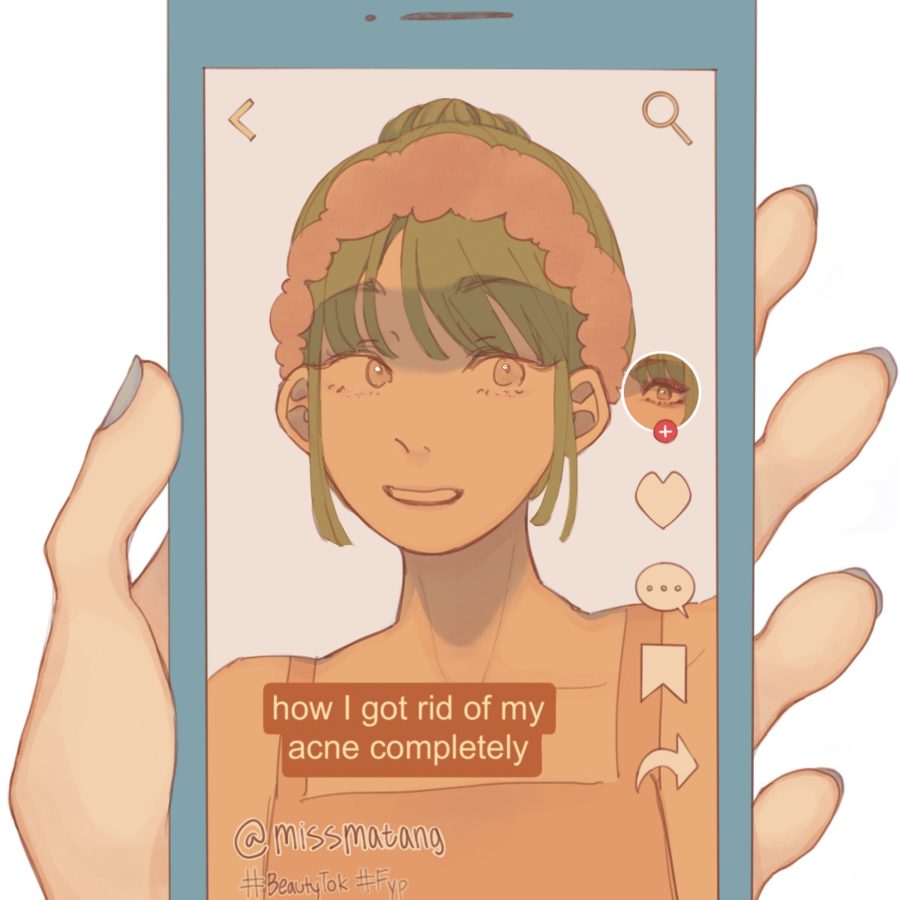When TikTok launched in 2016, many teenagers viewed it as just another social media platform for dance videos and pop music. However, after global popularity in 2020, TikTok is now known for being a creative outlet as well as an increasingly accessible search engine for Generation Z.
According to a Pew Research Center study, nearly 40% of Generation Z prefer researching topics on TikTok over platforms such as Google.
Senior Katie Firtch said she thinks Generation Z uses TikTok as a research tool due to its convenience and speed that appeals to their short attention spans.
“I would say that because of our very internet-attuned upbringings and our reliance on very easily consumable media and information, the TikTok format appeals to Gen Z because it doesn’t require a lot of attention,” Firtch said. “Using TikTok is a fast way to get a lot of information on a lot of topics.”
Freshman Ella Oliger said when searching on TikTok, many kinds of responses show up from different people who have different opinions, which appeals to her in multiple ways.
“When you look something up on Google, you get very precise search results in articles, and sometimes your question isn’t really answered,” Oliger said. “When you look things up on TikTok, you’re listening to real people and you can pick and choose what you want to listen to.”
Junior Alma Samet said she looks to Google for news and to TikTok for lifestyle choices and aesthetics.
“I would rather learn from a credible news source instead of a random person,” Samet said. “But when it comes to more aesthetic things in my life, like where I want to eat or where to buy clothes, I prefer to search on TikTok.”
Firtch said in addition to lifestyle choices, TikTok is a platform used to inform people about news.
“I find that a lot of people on TikTok tend to use it as a source to disseminate information about political movements and political activism,” Firtch said. “(Content creators) forecast if they believe people win certain elections for a reason, or they might say, this candidate is a good or bad person to fill a Senate position, in the house, or as a governor.”
Also, Samet said TikTok is a useful search engine due to its interactive nature. She said among the main social media platforms, TikTok is the best at connecting viewers and creators.
“TikTok is interactive because you can always ask questions in the comments,” Samet said. “Then, a creator might make another video answering your question. You can get follow-up information if you want to from the same person, which is cool.”
However, Firtch said TikTok can feed its inexperienced users, who also tend to be younger, more misinformation than traditional search engines. Firtch said she recommends students research topics on trustworthy platforms other than TikTok.
“The biggest fault with TikTok and the spread of misinformation is usually the fact that people like to make statements about many different individual problems and loot them all under the same umbrella,” Firtch said. “That makes productive discourse about (information given on TikTok) difficult because people don’t know where to look first.”
Firtch also said information on TikTok is often infiltrated by personal opinions and biases.
“On Google, it’s easier to find deliberately reliable information on .edu sites or .gov sites,” Firtch said. “Whereas on TikTok, there’s no way to see which accounts are government associated or university affiliated versus who’s just saying things as they can.”
In order to fact check information on TikTok, Firtch said she does her own research using more attested sources.
“I try to check accuracy by looking up other TikToks, looking at other posts on social media or looking at other sites on Google that corroborate the information or debunk it,” Fitch said.
While TikTok can spread misinformation, Firtch said it can be a creative outlet to spread knowledge.
“TikTok is a gamble and a free for all,” Firtch said. “But it can be a good outlet for seeing what people think, even if the information may be a little biased.”



Janice • Feb 9, 2023 at 5:47 am
Hi, it seems really good